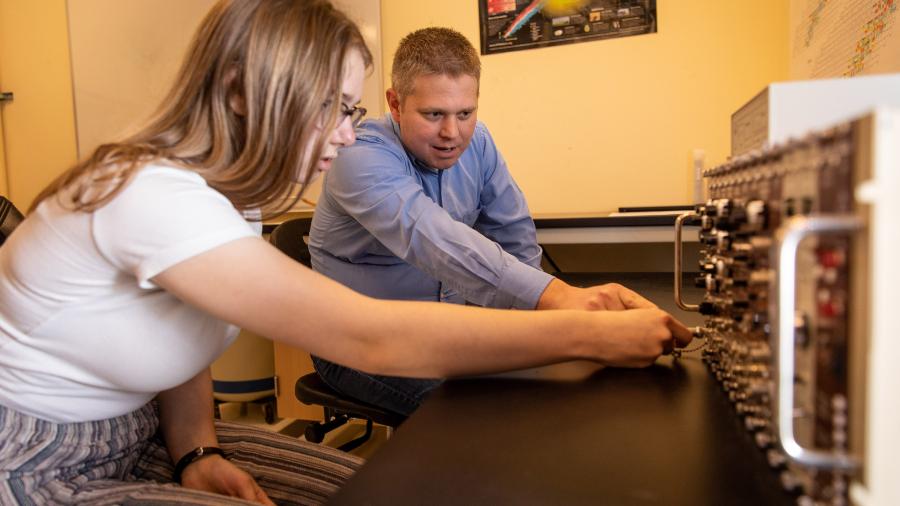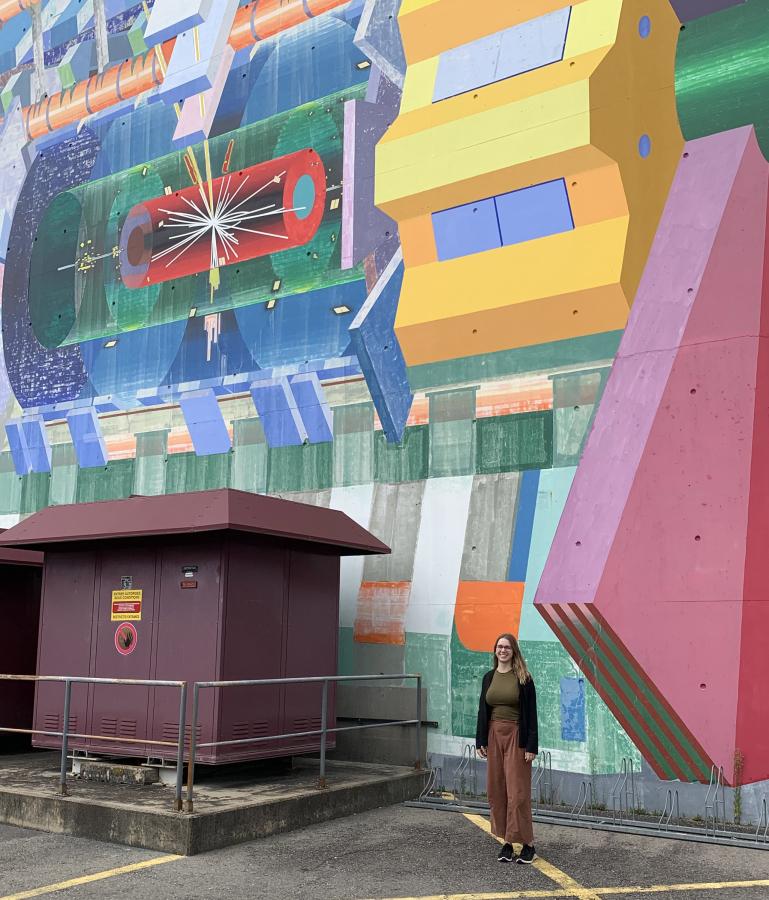Physicist Among Winners of Prestigious Award

Westmont scientists join thousands of researchers worldwide honored with the 2025 Breakthrough Prize in Fundamental Physics, awarded to the ATLAS experiment at the Large Hadron Collider (LHC) at CERN, a particle physics laboratory in Geneva, Switzerland, as well as several related experiments.
The Breakthrough Prize specifically highlights the ATLAS Collaboration’s significant contributions to particle physics, including detailed measurements of Higgs boson properties, studies of rare processes and matter-antimatter asymmetry, and the exploration of nature under the most extreme conditions.
Ben Carlson, assistant professor of physics at Westmont, and his students have helped operate the trigger system, critical for collecting high quality data, and develop techniques for analysis, enabling searches for dark matting using missing transverse momentum. Only a few other primarily undergraduate institutions collaborate on ATLAS research.
“The support from the ATLAS experiment for undergraduate students has been amazing,” Carlson said. “This recognition affirms the impact of our contributions and inspires us to continue exploring the universe’s most fundamental questions.”
One of the largest and most complex scientific instruments ever built, ATLAS investigates the fundamental building blocks of matter and the forces governing our universe. The general-purpose particle detector measures more than 40 meters long and 25 meters high. Its cutting-edge systems track particles produced in particle collisions at unprecedented energies, enabling discoveries like the Higgs boson and searches for new physics beyond the Standard Model.
“The Breakthrough Prize is a testament to the dedication and ingenuity of the ATLAS Collaboration and our colleagues across the LHC experiments,” said Stephane Willocq, ATLAS spokesperson. “This prize recognizes the collective vision and monumental effort of thousands of ATLAS collaborators worldwide.”
“I am extremely proud to see the extraordinary accomplishments of the LHC collaborations honored with this prestigious Prize,” said Fabiola Gianotti, director-general of CERN. “It’s a beautiful recognition of the collective efforts, dedication, competence and hard work of thousands of people from all over the world who contribute daily to pushing the boundaries of human knowledge.”
The third operating period of the LHC is now underway with preparations to upgrade the High-Luminosity LHC, which will increase collision rates 3-4 times when it begins operating in 2030. Carlson says Westmont students have the opportunity to develop new algorithms for high-speed trigger electronics that will play a crucial role in this next chapter.
